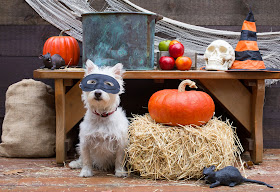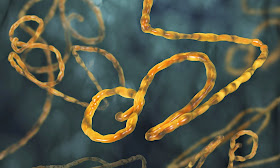www.BregmanVetGroup.com
Are you ready to celebrate Halloween? Celebrate safely by avoiding these top pet safety hazards!
Halloween Hazards:
- Candy Wrappers - Be sure to dispose of candy wrappers after you eat your sweets. Pets may unknowingly ingest wrappers. Keep an eye on your pets while eating candy this Halloween. Candy and candy wrappers are the number one reason pets take an emergency trip to the vet!
- Chocolate - Chocolate contains ingredients that can harm your pet. Chocolate poisoning signs include vomiting, diarrhea, hyperactivity, tremors, seizures, and a racing heart. If your pet exhibits any of these signs, contact our office immediately.
- Pumpkins - This festive decoration is relatively nontoxic, but if your pet does chew on a carved pumpkin, they may have an upset stomach. Jack-o-lanterns pose an additional threat. Keep curious kittens and puppies away from lit candle flames.
- Costumes - Have your pet try on the costume first. Check to make sure that they can move easily, including wagging their tail! You should also keep allergies in mind. If you notice your pet starts scratching or is unhappy, take the costume off.
- Open Doors - Chances are the door will be opening and closing a lot as trick-or-treaters come to your home. Make sure your pets are in a safe place where they can't dart outside into the dark.
Check out this article for more information on how to avoid these Halloween hazards and celebrate safely with your pets. As always, you can contact our office if you have any questions about your pet's health!


.png)






